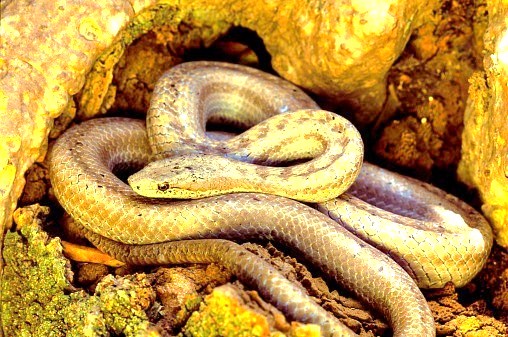Possibly the world's rarest snake, the Antiguan racer is small, non-venomous and good-natured. Unusually amongst snakes, this species shows dramatic sexual dimorphism with the females being much larger in size than the males and possessing almost the opposite colouration; females are a silvery-grey colour with pale brown blotches and stripes, whereas the males are dark brown with creamy blotches. |

